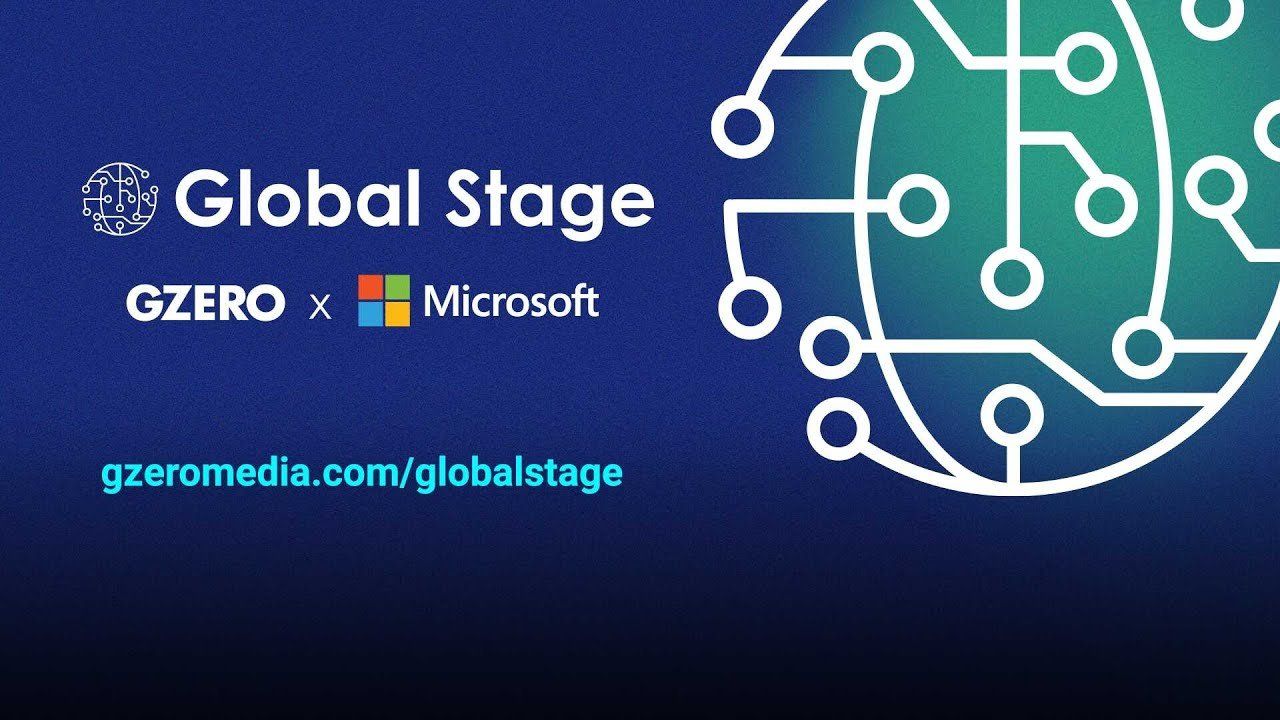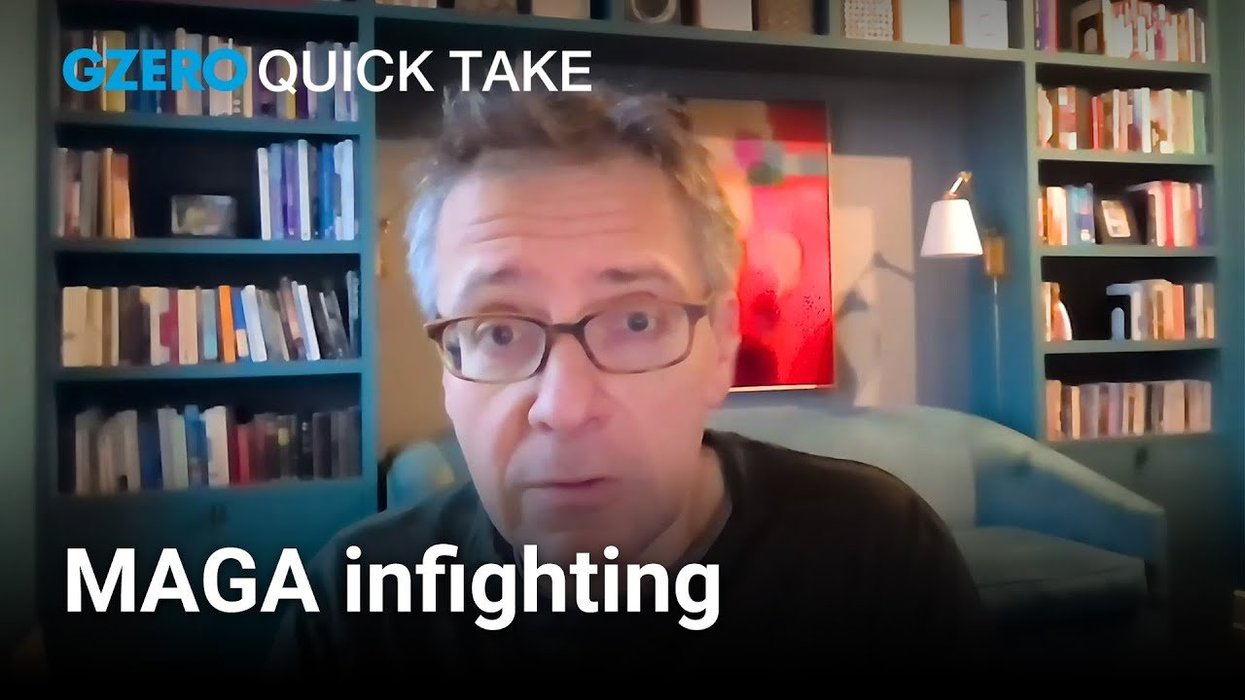Ian Bremmer's Quick Take:
Hi, everybody. Ian Bremmer here, and I've got your Quick Take. A lot's going on in the United States and on this planet. I have to feel better about the vaccines. I understand that we are significantly in the middle of this second wave right now, both in the United States and in Europe. Europe starting to flatten out quite a bit, even in the largest countries. Even in France, case levels coming down. But in the United States, we're not there yet.
The next couple of weeks, I'm actually quite concerned in terms of the numbers of cases, the hospitalizations, record levels, deaths, you're going to see a lot more. But the vaccine news is better than pretty much anyone I had spoken to had been daring themselves to hope over the last several months. I've talked to a lot of the world's top epidemiologists, had some of them on the show, no one thought we would have multiple vaccines at a 90%-plus level at this stage in the game, eight, nine months after we find out about this disease.
That's what we're looking at, with tens of millions of doses that will be available as of January. Yeah, you need to take two doses. You need to boost your shot for both the Moderna and the Pfizer vaccines, but assuming the production is going to continue to spike up, that means that by the time you need your booster, you'll have more production. So, literally, that means the United States and Europe could be looking at 50 million people that will be able to get vaccines, get vaccinated in January. That's a fantastic thing, and by spring, that feels like big pieces of the economy are coming back to normal as the weather's improving. So, finally, we can start to see the light at the end of this tunnel.
Another big thing is that we've politicized, in the United States, so much of coronavirus, wearing a mask, what kind of treatment lockdown, no lockdown, all of this stuff. But the vaccine, I mean, Operation Warp Speed has been run by incredibly capable people, and thank God for that. Both Moderna and Pfizer participated in the Warp Speed effort, and that's credit to the U.S. government, which means that President Trump has this as a win, that he will promote. Certainly, Biden will also promote it.
It is possible that there could be some politics around which states and when, though I don't expect it. I actually think, generally speaking, this is going to be all oars rowing in the same direction to get people back, functional, into the workplace, into the economy, and that's a fantastic piece of news. It really is. Also, some of the other vaccines like AstraZeneca or Johnson & Johnson look to becoming on-stream in coming weeks with their announcements, also look quite positive.
So, really, the politics of the last year have been so fractious, they've been nothing close to global coordination. So many governments have failed their populations in what needs to be done, the leadership we need to respond, but the private sector has not. In this regard, the fact that human ingenuity, human capital has been applied in a way and at a speed that we have never seen before in the history of humanity, means that in relatively short order, we can actually get back to our lives.
The big problem here is that the global economy coming back doesn't mean that everyone comes back with the global economy. Even as employment levels go up, and even as wages start to return, you're still going to have an awful lot of people that lost their jobs because of the disruption that comes from so many companies going bankrupt, brick and mortar companies doing so poorly, tech and the knowledge economy doing so well.
So, what are we going to do to help all of those people that have been left behind? That is the biggest problem. That's the biggest problem we're going to be experiencing next year, especially because, presuming that the Senate stays Republican, the ability to get any meaningful stimulus passed next year is tiny. That means the average American, hopefully a lot of people get their jobs back, but the six months, the nine months, the wages that are gone, and for all of those people whose jobs don't come back, they're in serious trouble.
What does that mean? That means more people on the streets. That means more mental illness. That means more criminality. That means less opportunity for our country that defined land of opportunity for a lot of our history, and that's not what we want. I mean, the thing that worries me the most, I look at China, not a country that we aspire to be like at all, but a majority of Chinese today believe that the China dream actually applies to them. Not politically, but economically, because as China has grown in the last 50 years, the middle-class has expanded massively.
The United States has been growing massively in the last 50 years too, but the middle-class has been eroding. It's actually been hollowing out, and the benefits in the United States are overwhelmingly to the top 10, top one, top 0.1, top 0.01%, and governance is going to be required to actually start to undo that.
I do believe, I honestly believe that President-elect Biden is the kind of person whose history, whose experience in the Senate, whose personal ideology, whose character will make him want to reach across the aisle and try to deal with this challenge in a way that President Trump certainly has not, in a way that, frankly, President Obama frankly, did not.
But I also think the country is too divided. Governance has eroded too much, has become too de-legitimized, and the political parties themselves, both within the democratic party, within the Republican party, too divided to make that work. So that's a problem. 2021 from a political perspective, looks horrible. From an epidemiological perspective, looks a hell of a lot better.
Where that ends up going is an enormously interesting question, because of course, a lot of incumbents around the world who this year are in trouble because things have gone so badly, next year might look a lot better, precisely ... not because they're governing so well, but because the economy's picking up so much, so maybe that creates more space to engage in the kind of political forms we'd like to see.
Anyway, that's some thoughts for me. But after almost a year of so many people engaging in various types of personal privation and not knowing when the end would come, and how hard that is, I mean, you're running on a treadmill, you have no idea when it's over, you're more likely to collapse. You run a marathon, you only have three miles left, you find that you end up having more gas in the tank.
Finally, we're at that point where we see the light at the end of the tunnel, and we actually know when it's coming. That's just great news, and I'm happy for everyone that we're able to announce it. So, God bless, and I'll see everyone real soon, and until those vaccines come, you avoid people. Be good.







